US President Joe Biden returned to the White House from his trip to the West Asian region without achieving his expected goals including increasing oil production, integrating the Zionist regime into regional trends, and forming a coalition against Iran.
In his first destination, Biden Wednesday arrived in the Palestinian Occupied territories to meet with Zionist regime officials.
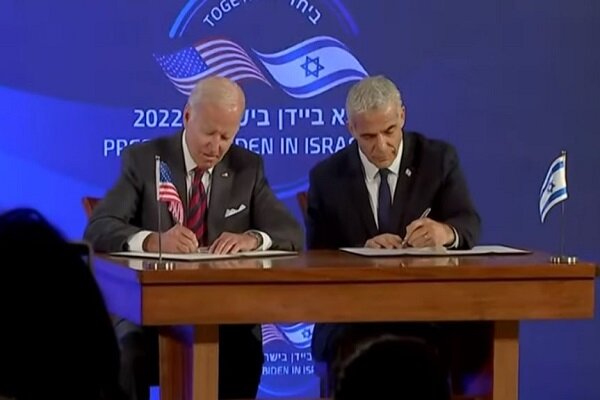
During his visit to Tel Aviv, Biden and the Israeli regime's PM signed a document including a formal commitment prohibiting the Islamic Republic of Iran from building a nuclear weapon.
However, Aljazeera described the document as relatively symbolic and more of a reaffirmation of the US and Israeli regime’s opposition to Iran’s nuclear rights.
The US and the Zionist regime are trying to limit Iran's nuclear activities while according to Iran's Foreign Ministry Spokesman Nasser Kan'ani, the Zionist regime itself is not a member of any of the non-proliferation treaties and international monitoring in the nuclear field and has a black history of violating international laws and regulations and a long history of violating the rights of nations and occupation.
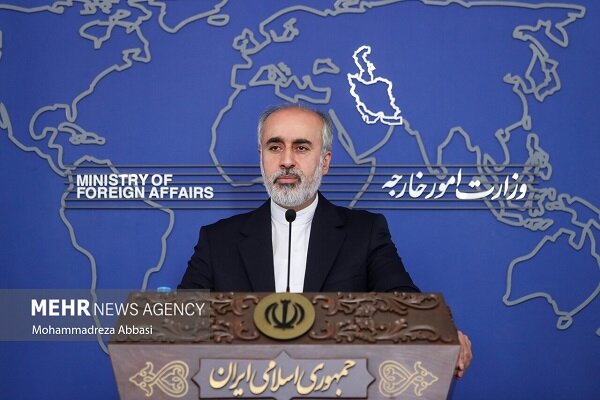
"The nuclear activities of the Islamic Republic of Iran are completely clear and legal, and it is a member of the International Atomic Energy Agency and the Non-Proliferation Treaty, and all of Iran's activities are carried out under the agency's supervision. Any activity of Iran in this field is carried out under the supervision of the agency. Having a nuclear arsenal and not being a member of the Non-Proliferation Treaty, the Zionist regime has no right to comment on Iran's peaceful activities," Kanaani emphasized in his latest press conference commenting on the statements of a Zionist regime official (who said that they still could take actions action to confront Iran's nuclear program and take measures against it).
"The nuclear capability and arsenal of this regime is a threat to international peace and security, and it is the responsibility of international assemblies, the United Nations and the Agency to address the nuclear situation of this regime and force it to fall under non-proliferation regulations. The lawlessness of this regime is the result of the unconditional support of some countries, including the United States," the senior Iranian diplomat continued, adding that Iran will definitely respond to any unwise actions of the Israeli regime.
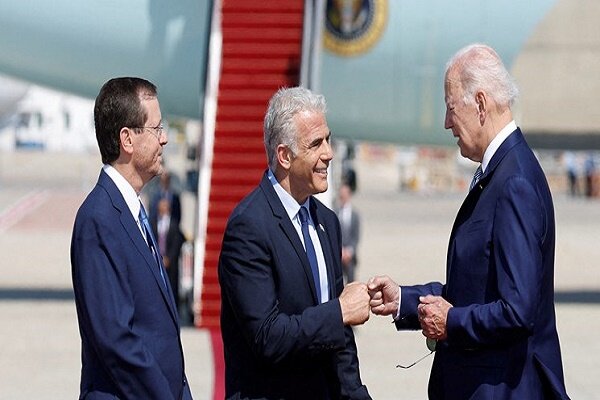
Having another goal for his visit to the Occupied lands, Biden was hoping for creating an anti-Iranian coalition in the region with the help of the Zionists. Nevertheless, his second goal was also faced with the rejection of regional countries.
Saudi Arabia's Foreign Minister Prince Faisal Bin Farhan stated that no plan was raised on military or technology cooperation with the Israeli regime at the Summit and there is no plan called “Arab NATO”, Saudi Gazette reported.
The Saudi top diplomat made the comments on the sidelines of the Jeddah Summit which the US president, in his second destination in the middle east, was also attending.
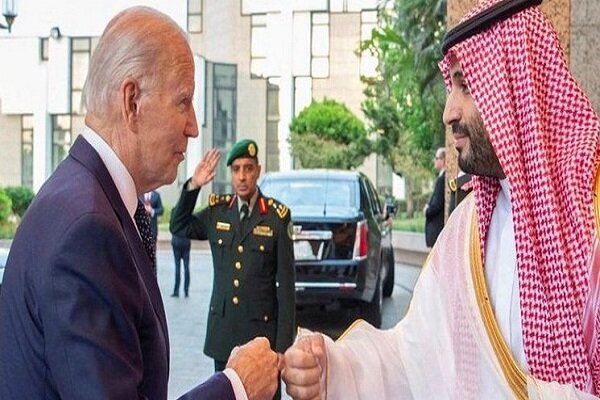
While Biden was expected to urge the Saudis to ramp up oil production, he arrived in Saudi Arabia after his visit to Tel Aviv.
The Guardian wrote that three years after Joe Biden vowed to make Saudi Arabia a pariah state over the assassination of a prominent dissident, the US president greeted Crown Prince Mohammed bin Salman with a fist bump.
Saudi Arabia's Minister of State for Foreign Affairs Adel al-Jubeir announced that there was no agreement made between the US and Saudi Arabia on oil during Biden's visit.
Al-Jubeir added that Saudi and OPEC countries would make a decision based on the market, not hysteria or politics, Reuters reported.
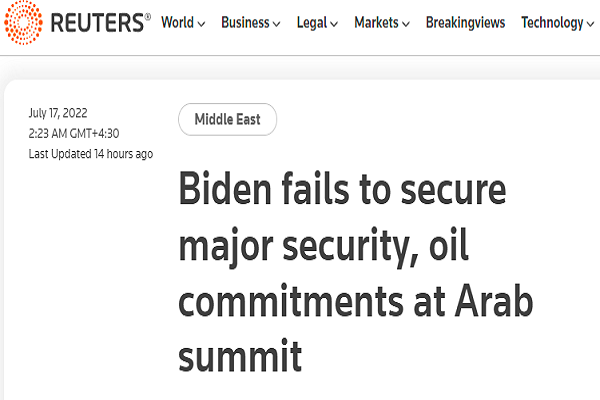
According to Reuters, President Joe Biden told Arab leaders on Saturday claimed that the United States would remain an active partner in the Middle East, adding that he failed to secure commitments to a so-called regional security axis that would include the Israeli regime or an immediate oil output rise.
Biden's remarks about the US's active presence in the middle east come nearly one year after the US withdrew all military troops from Afghanistan and ended 20 years of war in the country, according to CNN.
Report by Mohaddeseh Pakravan


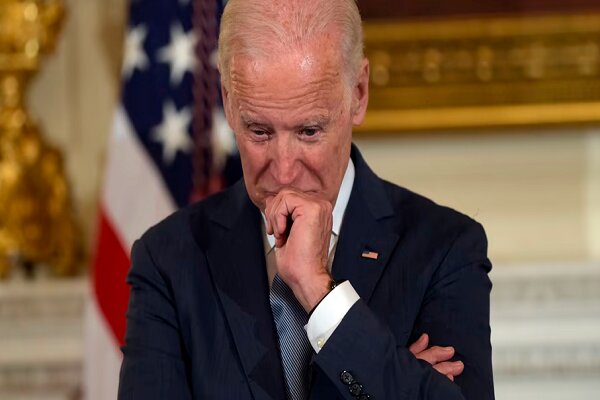






















Your Comment